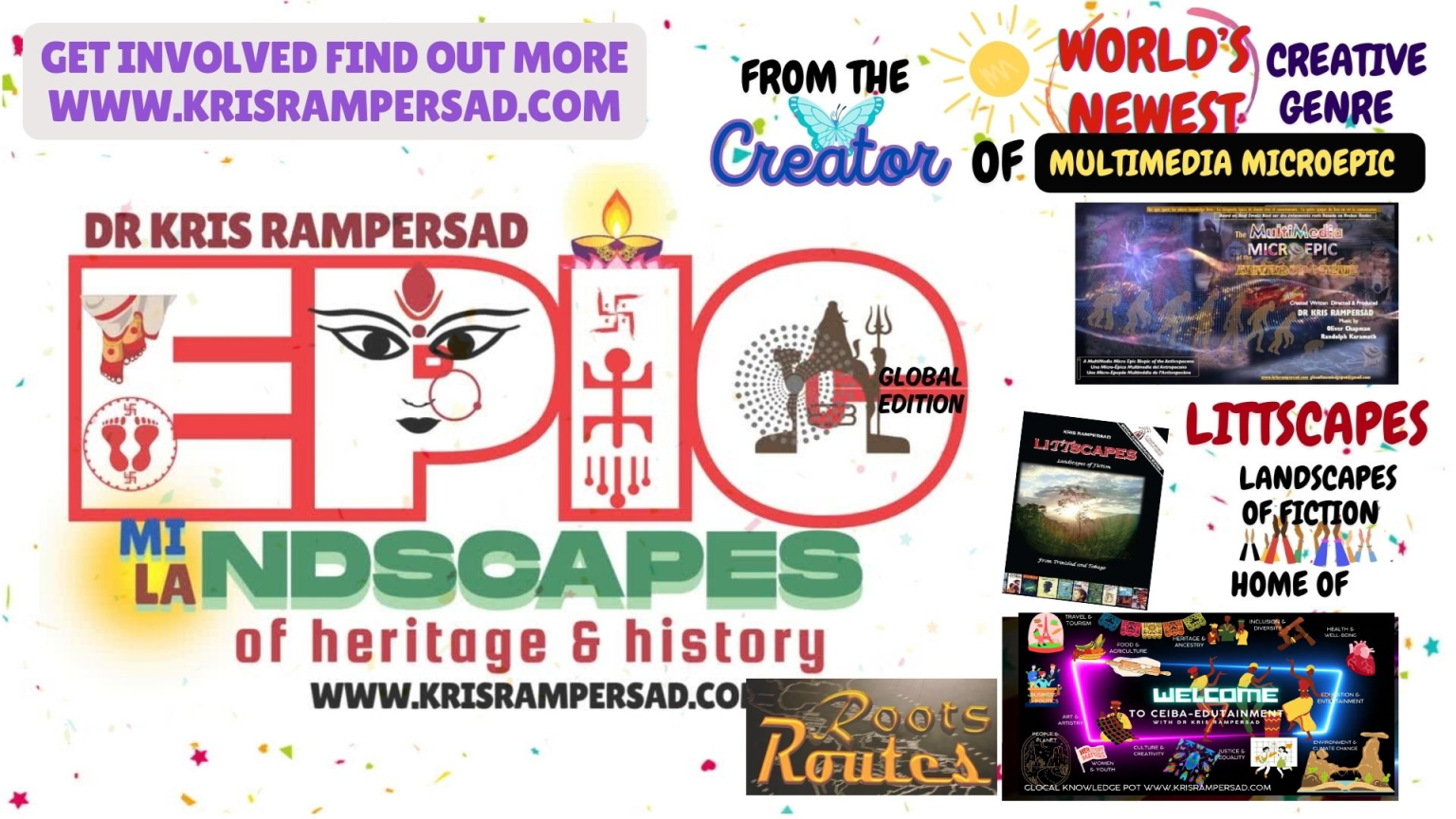Did someone say war? So what's a War without an EPIC, or an EPIC without a War, eh. See sneak peak video above and subscribe also to my You channel!
Offering a sneak peak at my EPIC WAR for Peace from the unfolding MultiMedia MicroEpic Landsapes & Mindscapes of Heritage & History as we commemorate the 5000th anniversary of the revelation of the Bhagavad Gita, one of the world’s most enduring epics. Observed globally as Gita Mahotsav, Gita Jayanti, or the birth of the Bhagavad Gita, it is the period when Lord Krishna delivered his timeless teachings to Arjuna on the battlefield of Kurukshetra.
Here is a preview of my creation of a New World extension of the Gita as expressed through the world’s newest creative genre, the Multimedia MicroEpic of the Anthropocene. This segment of my EPIC, Divine Dialogue on the Battlefield of Diaspora, adapts and extends the Gita’s eighteen chapters into a contemporary, globalised frame, encompassing the lived experiences of the world’s largest diasporas and the unfolding Divine Dialogue in the War for Peace and Sovereignty in the digital age within the crises feeding this fraught culmination of the Anthropocene.
Support development of New World Epic Make Contact!
See Post: https://krisrampersad.com/epic-great-war-oils-new-world-battle-in-diaspora-high-seas/
See You Tube Sneak Peak : Subscribe: https://krisrampersad.com/










































